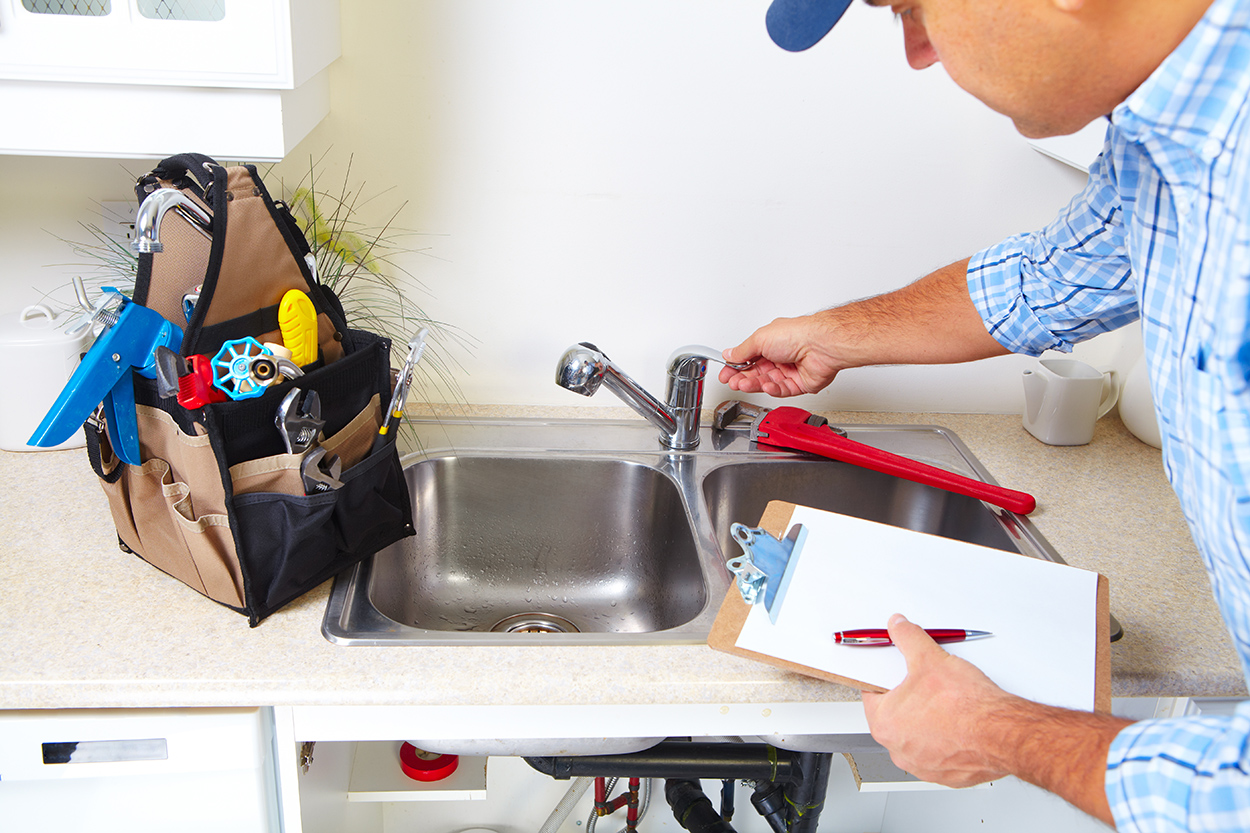
Blocked Sewers
Overflowing or blocked sewers are among the most serious plumbing emergencies likely to occur in a household or business. Sewer problems are a major cause for concern due to the hygiene risk they pose, as well as the odour and inconvenience of not being able to use your toilet or other amenities.
A variety of factors can influence the stress placed on sewerage networks, and their ability to function efficiently. New paving and building operations, increased volume through population growth, changing climates, and the growth or shrinking of green spaces can all affect the sewerage systems servicing your premises. Looking after your own drains and plumbing systems will also protect the integrity of the larger sewer networks which your community relies on.
Some homes may have a stormwater drain which is connected to their sewerage system. This oversight may seem relatively harmless, but in times of heavy rain or flooding, it has the capacity to overwhelm your sewerage system and create a biological and infrastructure hazard. Not only is there the potential for sewerage to flood your home, but in the event of major flooding, a neighbour’s sewerage system may be compromised, which can also affect you and your home.
How to tell if your drain or sewer is blocked
- Slow draining sinks, baths, toilets, and floor drains
- Unusual or nasty odours coming from drains and fixtures
- Water gathering or overflowing
If your home’s plumbing has a blockage somewhere, wastewater and material won’t be carried away as it should be, and can back up and overflow. This can cause wastewater or even sewerage to flow from the drains and fixtures in your home. This backup of wastewater often causes drains to drain slowly, or not at all, which is often the first thing you notice when a blockage has occurred.
What causes blocked drains and sewers?
The sewerage system which services your household is designed specifically to deal with wastewater and certain elements of human waste (sewerage and toilet tissue). Blockages are often caused by other materials building up inside the joints or pipes which make up your home’s plumbing system.
REMEMBER: You should throw away any food waste or other material by disposing of it in the bin, not flushing it down the sink. Always take care to clear plates before washing them in the sink or loading them into your dishwasher. Leftover food, fat, and oil are a major source of the clogs and blockages we encounter in domestic households, as these materials set hard in pipes and then catch other sediment. When using your toilet, make sure that you only flush toilet paper (and only do so in reasonable amounts). Some wipes, such as baby wipes, may be marketed as ‘flushable’, but in reality they are made of a more durable plastic-based material which can catch in pipes and joints without breaking down. They can then catch other material and a blockage can form. It is a good idea to keep a small bin in your bathroom or toilet for disposal of such items, as flushing them is not a good idea.
Key points to remember – keeping your drains clear:
Leave any leftover oil, fat, or food to cool down, and then dispose of it in the bin. Never wash it down the sink or stack plates covered in food material in a dishwasher.
Remember that sanitary items such as baby wipes, nappies, and kitchen towels and wipes should not be flushed as they do not break down easily like toilet paper. Keep a bin in your bathroom for disposal of these items.
Chemicals, solvents, paint, and engine oils or other liquids should be disposed of properly through your council’s refuse collection or recycling program. It is generally OK to put these materials in your waste bin. Never flush them into your home’s drain, as you risk creating a serious blockage which could damage your home’s plumbing system.
IF IT’s NOT WATER, HUMAN WASTE, OR TOILET PAPER, THROW IT IN THE BIN! Other materials can easily form clogs or blockages, which can cause water and waste to flow back through the fixtures in your home and create a hazard.
Misconnected pipes
The sewerage network which services your premises consists of two main systems; the surface water sewer and the foul water sewer. Surface water sewers are used to carry water (such as runoff and rainwater) into local rivers, streams, and ‘soakaways’. The surface water sewer carries away water which collects in driveways, on roofs, roads. You may notice gutters at the edge of the road, these provide access to the surface water sewer.
The foul sewer on the other hand, is responsible for taking wastewater and toilet waste to a sewage treatment plant or waterworks facility. Water from showers, sinks, toilets, dishwashers and other common fixtures is carried through the foul water sewer to a local plant.
In some cases, a premises’ plumbing system may be misconnected, which results in significant environmental pollution by draining waste water into the surface water sewer.
You may notice wastewater pipes draining into a gulley which also has a rain or stormwater drain flowing into it. If your home has a manhole which contains both your surface and foul water pipes, the foul water pipe can become blocked and overflow into the surface water pipe.
If you believe that your home’s plumbing may be misconnected, you should speak to us so we can connect your plumbing properly. Failing to do so can land you in trouble with local authorities and make it difficult to sell your home – not to mention the significant detriment such misconnections cause to the local environment.
Melbourne’s Sewerage System
Melbourne’s sewerage system is modern and efficient, but requires a considerable amount of maintenance and treatment in order to function properly.
The sewerage system which services your home or business often remains out of sight, out of mind. But it is important to gain a basic understanding of this vital system so that you can play your part in ensuring its efficiency.
A variety of environmental and human-induced factors can affect the ability of Melbourne’s sewerage system to function effectively. For example, the state government’s website states that build-ups of oils, fats, grease, and non-flushable sanitary products such as wipes regularly cause blockages which can affect a whole neighbourhood. Cotton buds, due to their size which allows them to slip through filters and nappies have also been reported as causing very serious blockages and damage to sewage works and treatment plants.
Like us, the state government urges homeowners to be aware of the fact that everything which you flush down the toilet or wash into sinks and drains ends up in the city’s sewerage system. Putting the wrong things into the system can cause not only damage to your home, but also the city’s infrastructure more broadly.
Sewer problems can affect whole groups of premises as once, and are a major inconvenience and source of public expenditure. Though some sewerage problems are the result of environmental factors such as tree root penetration, weather and geological conditions, or hardware failures such as burst or broken pipes, the vast majority are caused by human misuse of plumbing and sewerage systems.
The state’s water authorities urge homeowners and businesses to implement some of the following practices to ensure our sewerage system continues to operate at high efficiency. Following this simple advice can also prevent costly damage or blockages occurring in your own home:
- Wipe down greasy pots, pans, crockery, and utensils with paper towel before washing – and dispose of the paper towel in the bin.
- Use less detergent when washing dishes or doing laundry – according to the government’s data, most households use three times the recommended amount of detergent.
- Ask your council or a local pharmacy for advice on how to correctly dispose of hazardous chemicals and medicines, as these should never we washed into drains.
- Use a sink strainer in your kitchen sink. These can be purchased cheaply, and work by preventing household waste such as food scraps from entering your drains, where it would otherwise build up.
- When choosing a washing or cleaning detergent, select an option with a low salt content. Salt can build up and cause sediments to clump together. Concentrated detergents usually contain significantly less salt than other varieties.
- If you are renovating your home, or have a plumber in conducting general repairs or seeing to another matter, ask the plumber to make sure that your home’s stormwater plumbing is not connected to your sewerage system. This is very important, as sewerage material can be washed out of the system in the event of flooding if your stormwater drains are connected to the same system.
Remember that individual councils and Local Government Areas may have different regulations and sewerage maintenance practices. If you are in doubt as to what sort of system may be servicing your premises, and how this might affect the sort of practices you should perform, you should contact your council or LGA for advice. Many LGAs also list alerts and maintenance schedules on their websites, which can be very useful. With this in mind, the points outlined above are good general advice for minimising the risk of plumbing problems in your home or business, as well as maintaining the efficiency of the larger infrastructure network which services your premises.
What to do if your premises are flooded by sewerage overflow?
In the unfortunate event that your home is flooded with sewerage overflow as a result of rain and flooding, a blockage, or an infrastructure problem, you should contact your insurance provider as soon as possible. If you wait, you risk jeopardizing your claim, which can in turn affect your ability to repair the problem. Before you call your insurance provider, you should quickly turn off your home’s gas, water, and electricity at the mains. Do not turn these on again until your home’s systems have been inspected by a licensed professional.
Ensure that people and pets do not enter the flooded area, as it may be contaminated by sewerage material and constitute a biological hazard. In the event that corrosive chemicals, such as chemical drain cleaners, were poured into drains in an attempt to clear a blockage, these may have flowed back out as part of the flooding. This also constitutes a risk, not only to your health and safety but also to the services and fixtures in your premises.
Do not try to assist drainage by lifting manhole covers, as this can exacerbate the problem. Remember that if your personal or business property is damaged, do not discard any damaged or broken items until your insurance provider has performed an inspection.
Once the inspection has been carried out, you should begin the cleanup process by ensuring that the premises is thoroughly ventilated. Wear gloves and other protective equipment to minimise contact between sewerage and waste material and your body.
If you experience any symptoms such as diarrhoea or vomiting, you should seek immediate medical advice or assistance.
Your plumber may use a tanker to pump away water and waste material. These are a temporary measure, and are very noisy and can cause significant disruption and inconvenience. Tankers generally do not have a significant impact, but can be used to minimise the damage caused by internal flooding. If you are experiencing internal flooding, we may be able to mitigate the damage to your premises by using a tanker.
Local authorities, such as councils, will work with residents to restore toilet facilities in the event of localised flooding or sewerage disruptions. Ensure that you maintain contact with your local officials to ensure that these steps are being taken. Your plumber can assist you in establishing temporary toilet facilities.
Blocked sewer causing flooding
If you have experienced sewer flooding which originated in sewers we manage, we will gladly clean the affected area for you and work hard to rectify the problem as soon as possible.
What can cause sewers to flood?
All of the precautions listed on this page should be followed in order to minimise the risk of sewer flooding. Abnormal weather events, such as torrential rain, can also cause sewer flooding – particularly where homes have had their pipes misconnected, causing surface and waste water to flow into the same drainage gully or manhole.
Manholes
Manholes can become very dangerous once the cover is damaged or removed. If you happen to notice a manhole which has been damaged or left open, you should contact your local water authority as soon as possible. If you can’t get in touch with the authorities, let us know and we will replace or repair the manhole to minimise the risk to public safety and reduce any damage to sewerage infrastructure.
Rodents
Sewers are a perfect habitat for rats and mice to nest in and travel through. As many people and businesses neglect to properly clear food preparation and service items before washing them, many food morsels wash into sewers which provide rats with a stable and abundant source of nutrition. This facilitates their rapid reproduction and assists them in using sewers to move around. Generally, older, less well maintained sewer systems offer a better habitat for rats and mice as they can move more freely.
Rats are particularly bad, as they can chew through plastic piping and cause damage to sewerage and plumbing infrastructure.
If the sewers servicing your premises are infested with rats, it is likely that rats can gain access to your premises and become a problem. Local councils are able to organise baiting and eradication programs, so notify them if you believe there is an infestation problem.
We can ensure that your home is protected against rodents, and that your premises’ plumbing system is not going to serve as a conduit for rodent infestation. Call us today if you believe rodents may be gaining access to your premises through its plumbing infrastructure.












